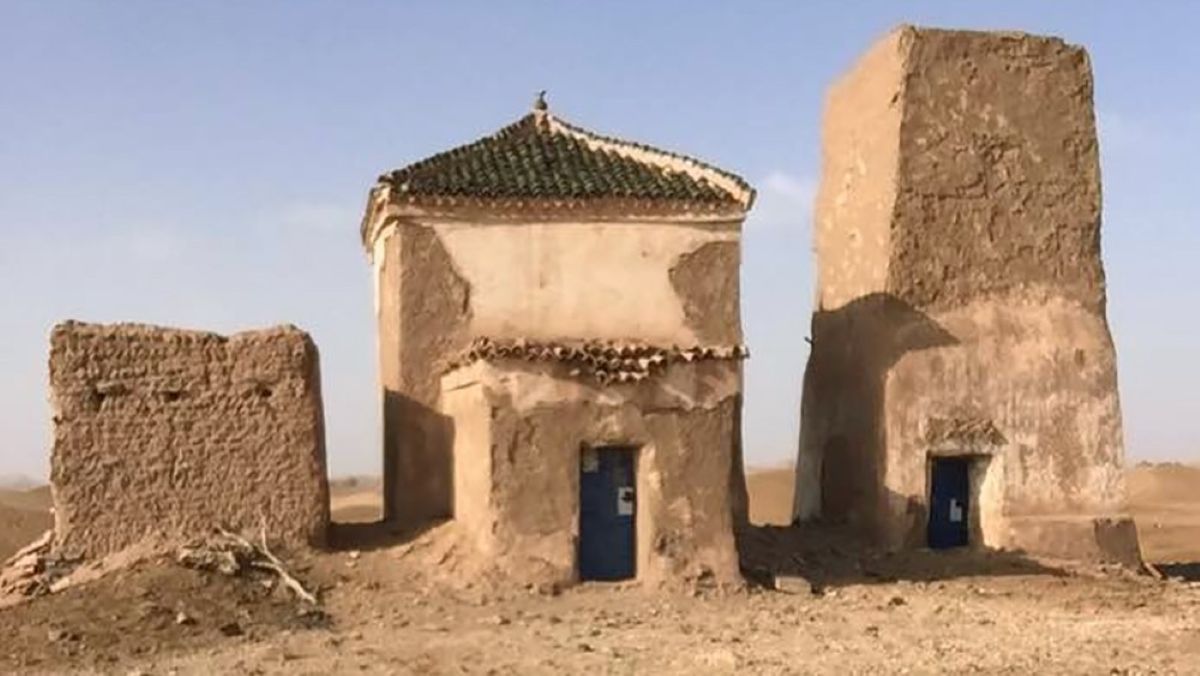
Ultra-distance running can be dangerously addictive. I’m speaking from personal experience, having done a 100-mile run that left me looking (according to my concerned friends at the finish line) “like a corpse”.
But once you get the bug, you’re constantly looking for something long and more extreme. But nothing out there is quite like the notorious Marathon des Sables, a truly grueling multi-day ordeal through the Moroccan Sahara. Even if the race goes perfectly, it’ll still be a painful and dangerous experience.
And if it goes wrong? Well, enter Italian runner Mauro Prosperi, who in 1994 had what might be the single worst running experience in human history.
Prosperi and his teammate, Giovanni Manzo set out on the 156-mile race on Apr 10, 1994, and for the first three days, things were going well. But, on Apr 14, he decided to make a push for glory, accelerating away from his friend. It was at that point that a sandstorm began:
“When the sandstorm started to blow, I lost sight of everybody else. I kept running, though, because I thought I could see the trail. I was in seventh place and didn’t want to lose my standing. It was nearly dark before the winds relented. I started running again, but after a few minutes it occurred to me that I had lost the trail.”
The sandstorm’s intensity was such that he had to shelter in a bush while covering his face with a towel. The next day, the weather cleared and, to his horror, he realized he couldn’t see any other runners or any signage for the race.
Prosperi remembered the race advice to remain in place, eventually seeing a helicopter he assumed was searching for him. He scrambled to grab the small flare in his backpack and fired it into the air. Then, as his little light dimmed, the helicopter began to fly away, the pilot not spotting it. He was on his own.
Buckle up, it gets worse

So he began walking through the desert, his water supplies dwindling, desperately hoping to rejoin the race or find any sign of civilization. Eventually, he spotted a shrine, but what he found inside was hardly a good omen:
“I came across a marabout—a Muslim shrine—where Bedouins stop when they are crossing the desert. I was hoping it was inhabited, but unfortunately there was nobody there—only a holy man in a coffin.”
Prosperi sheltered inside the shrine, soon resorting to drinking his own urine after what little food and water he had were gone. Eventually, he noticed a bat colony inside, capturing and decapitating them before sucking out their blood and devouring their tiny bodies. He also captured lizards and beetles, desperate for any nutrition and fluid.
One day, he saw a plane and frantically traced SOS in the sand before lighting a fire. Just as that began to smoke, another sandstorm began, obscuring him from any rescuers. Prosperi understandably concluded that the fates were against him, wrote a farewell message to his family, and cut his wrists open:
“I was very depressed. I was convinced I was going to die and that it was going to be a long agonizing death, so I wanted to accelerate it. I thought if I died out in the desert no-one would find me, and my wife wouldn’t get the police pension—in Italy, if someone goes missing you have to wait 10 years before they can be declared dead. At least if I died in this Muslim shrine they would find my body, and my wife would have an income.”
He lay in the sand and closed his eyes for what he assumed would be the last time. Hours later, he opened them again, looking to his wrists and seeing that his wounds had barely bled at all. He realized he was so dehydrated his blood had thickened, saving his life.
Spurred on, he set back out into the desert. Finally, his luck improved when he found a small oasis. Eventually he spotted goat dung and, following it, saw a young girl tending to some goats. He approached her and she screamed:
“I took out my signal mirror and turned it toward my face. I was appalled. I was a skeleton. My eyes had sunk so far back into my skull, I couldn’t see them.”
But, mercifully, this was his salvation. He was soon rescued and discovered he’d wandered 181 miles away from the race, crossing the border into Algeria. It took two years for him to fully recover but, remember what I told you about ultra running being addictive? Prosperi returned to the desert and has since run the Marathon des Sables six times: “I feel a connection there … the Sahara spared my life.”
Well, that’s one way of looking at it!







